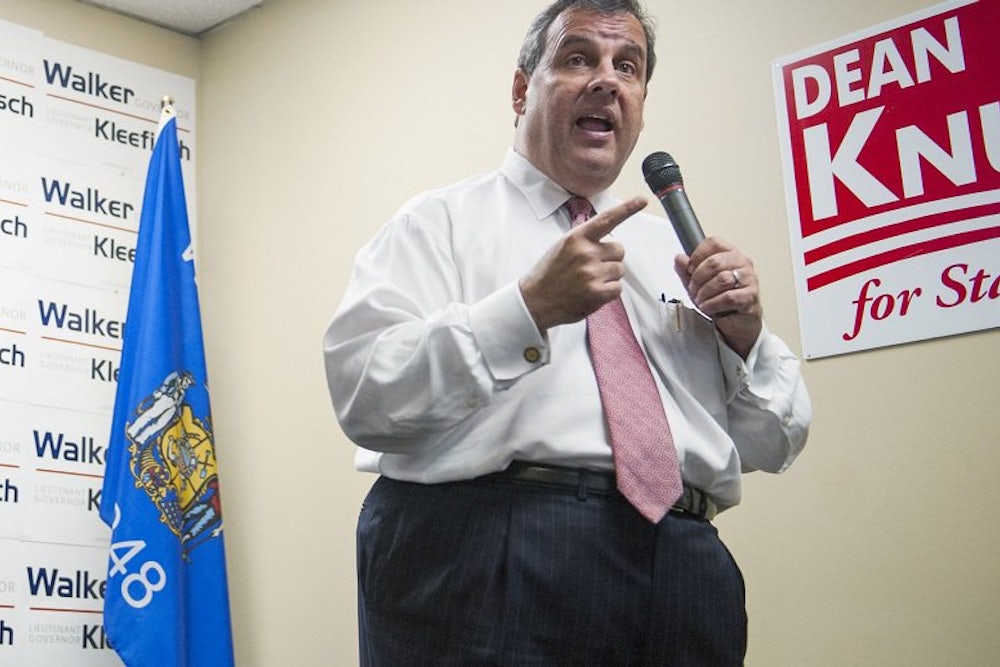The New York Times and Washington Post both published stories Tuesday on the current mindset of Republican donors as the primary campaign heats up. The reports, however, come to opposite conclusions. “Dozens of the Republican Party’s leading presidential donors and fund-raisers have begun privately discussing how to clear the field for a single establishment candidate to carry the party’s banner in 2016,” Nicholas Confessore writes in the Times. Matea Gold and Tom Hamburger reported otherwise: “Despite the appeals, which have stepped up in recent weeks, many top donors have committed to being noncommittal, wary of fueling the kind of costly and politically damaging battle that dominated the 2012 primaries.” I don’t know who’s right—and the two reports are not entirely contradictory—but the conflicting pieces indicate just how messy the GOP primary is.
Republican donors must decide how to involve themselves in the crowded primary. Do they put a lot of money toward one candidate who, purely due to numbers, does not have a high chance of winning? If the establishment splits and puts money behind both former Florida governor Jeb Bush and New Jersey Governor Chris Christie, could a more conservative candidate sneak through? If the donors withhold funds until a leader emerges, could they lose control over the primary process? These are all questions that GOP donors are currently debating and, as indicated by the Times and Post stories, struggling to answer.
The two reports agree on the plans of one particular donor: casino magnate Sheldon Adelson. Adelson, who spent nearly $100 million on the 2012 campaign, is not backing any candidate right away. “He is meeting with everybody,” Andy Abboud, his top political adviser, told the Post. “But any decision about 2016 candidates is a long ways down the pike.” Adelson intends to set up his own super PAC so he has direct control over how his money is spent, instead of using multiple independent groups which he and his wife believed were inefficient. But it’s not clear how many donors are following Adelson’s lead, or whether that strategy will prove more effective in influencing the primary and winning the White House.
What does this mean for potential Republican candidates? It’s hard to say. The invisible primary has been ongoing for months now with potential candidates courting donors and trying to earn their commitments. Some candidates, like Texas Governor Rick Perry or Indiana Governor Mike Pence, may prefer donors to withhold committing funds until further along in the primary, after they have a chance to prove they are credible candidates. Others, like Christie or Bush, are actively trying to win the establishment’s support early on. But with conflicting reports, it’s tough to tell what exactly is happening or who benefits.
In fact, that represents the state of the Republican primary at this moment. Since the beginning of November, right-winger Ben Carson, Senator Ted Cruz, and Senator Rand Paul have all been called the frontrunner for the GOP nomination. After Wisconsin Governor Scott Walker won reelection, he was often talked about as the leading Republican. Many other conservatives are in the mix as well. In other words, it’s hard to say who really is leading the primary, and that message is echoed in the contradictory articles in Tuesday’s papers.
This isn’t necessarily a bad thing for Republicans, of course. A field of diverse candidates, some of whom are more qualified than others, could lead to a competitive primary that produces a strong general election candidate. It could also backfire, with Republican candidates attacking each other. But what’s clear is it’s going to be a complicated, messy primary—for candidates, donors, and journalists alike.
